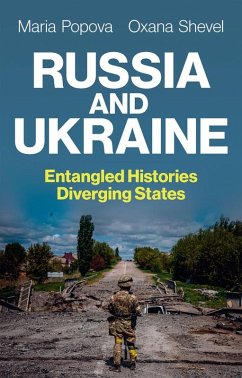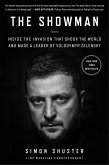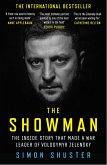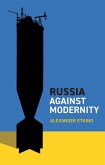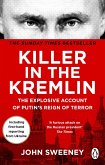In February 2022, Russian missiles rained on Ukrainian cities, and tanks rolled towards Kyiv to end Ukrainian independent statehood. President Zelensky declined a Western evacuation offer and Ukrainians rallied to defend their country. What are the roots of this war, which has upended the international legal order and brought back the spectre of nuclear escalation? How did these supposedly "brotherly peoples" become each other's worst nightmare?
In Russia and Ukraine: Entangled Histories, Diverging States, Maria Popova and Oxana Shevel explain how since 1991 Russia and Ukraine diverged politically, ending up on a collision course. Russia slid back into authoritarianism and imperialism, while Ukraine consolidated a competitive political system and pro-European identity. As Ukraine built a democratic nation-state, Russia refused to accept it and came to see it as an "anti-Russia" project. After political and economic pressure proved ineffective, and even counterproductive, Putin went to war to force Ukraine back into the fold of the "Russian world." Ukraine resisted, determined to pursue European integration as a sovereign state. These irreconcilable goals, rather than geopolitical wrangling between Russia and the West over NATO expansion, are - the authors argue - essential to understanding Russia's war on Ukraine.
In Russia and Ukraine: Entangled Histories, Diverging States, Maria Popova and Oxana Shevel explain how since 1991 Russia and Ukraine diverged politically, ending up on a collision course. Russia slid back into authoritarianism and imperialism, while Ukraine consolidated a competitive political system and pro-European identity. As Ukraine built a democratic nation-state, Russia refused to accept it and came to see it as an "anti-Russia" project. After political and economic pressure proved ineffective, and even counterproductive, Putin went to war to force Ukraine back into the fold of the "Russian world." Ukraine resisted, determined to pursue European integration as a sovereign state. These irreconcilable goals, rather than geopolitical wrangling between Russia and the West over NATO expansion, are - the authors argue - essential to understanding Russia's war on Ukraine.
Dieser Download kann aus rechtlichen Gründen nur mit Rechnungsadresse in D ausgeliefert werden.
"If you only have time to read one book on the origins of contemporary conflict between Russia and Ukraine, this is the book to read! The perfect team of Popova and Shevel together bring unique depth of understanding of both countries to explain this tragic story of divergence between Ukraine and Russia. It will become a definitive account of this history by which all future studies will be judged."
Michael McFaul, Senior Fellow at the Hoover Institution; Professor of Political Science, Director, and Senior Fellow at the Freeman Spogli Institute for International Studies at Stanford University; and former US Ambassador to the Russian Federation
"There is a flood of books on the Russo-Ukrainian war written by overnight experts. This book is different. For anyone who wants to understand the origins of the largest military conflict in Europe since World War II this book is a must-read."
Serhii Plokhy, author of The Russo-Ukrainian War: The Return of History
"Shevel and Popova are as unflinching as they are comprehensive and nuanced in their indictment of Russia's imperialist war against Ukraine. Essential reading for anybody who wants to understand the most important geopolitical event of our age."
Ian Garner, author of Z Generation: Into the Heart of Russia's Fascist Youth
"What explains Russia's invasion of Ukraine and Ukraine's valiant resistance? Popova and Shevel, both eminent scholars of the region, focus on the dynamics of Ukraine-Russia relations since the breakup of the USSR and show how Russia's slide towards autocracy and revival of imperial aspirations pushed Ukraine in the opposite, more democratic and pro-Western direction until deadly, genocidal warfare remained the Kremlin's only hope to subjugate its neighbor. Deeply researched, breathtaking in its scope and engagingly written, the book is an absolute must-read for anyone who wants to understand the origins of the war."
Eugene Finkel, Johns Hopkins University
"Russia and Ukraine started out in similar places after the Soviet collapse. But, as Maria Popova and Oxana Shevel explain, they have increasingly diverged over the past three decades. Today autocratic Russia has invaded democratizing Ukraine in what the authors vividly describe as the ultimate struggle for Ukraine's right to an independent future."
Angela Stent, author of Putin's World: Russia Against the West and with the Rest
Michael McFaul, Senior Fellow at the Hoover Institution; Professor of Political Science, Director, and Senior Fellow at the Freeman Spogli Institute for International Studies at Stanford University; and former US Ambassador to the Russian Federation
"There is a flood of books on the Russo-Ukrainian war written by overnight experts. This book is different. For anyone who wants to understand the origins of the largest military conflict in Europe since World War II this book is a must-read."
Serhii Plokhy, author of The Russo-Ukrainian War: The Return of History
"Shevel and Popova are as unflinching as they are comprehensive and nuanced in their indictment of Russia's imperialist war against Ukraine. Essential reading for anybody who wants to understand the most important geopolitical event of our age."
Ian Garner, author of Z Generation: Into the Heart of Russia's Fascist Youth
"What explains Russia's invasion of Ukraine and Ukraine's valiant resistance? Popova and Shevel, both eminent scholars of the region, focus on the dynamics of Ukraine-Russia relations since the breakup of the USSR and show how Russia's slide towards autocracy and revival of imperial aspirations pushed Ukraine in the opposite, more democratic and pro-Western direction until deadly, genocidal warfare remained the Kremlin's only hope to subjugate its neighbor. Deeply researched, breathtaking in its scope and engagingly written, the book is an absolute must-read for anyone who wants to understand the origins of the war."
Eugene Finkel, Johns Hopkins University
"Russia and Ukraine started out in similar places after the Soviet collapse. But, as Maria Popova and Oxana Shevel explain, they have increasingly diverged over the past three decades. Today autocratic Russia has invaded democratizing Ukraine in what the authors vividly describe as the ultimate struggle for Ukraine's right to an independent future."
Angela Stent, author of Putin's World: Russia Against the West and with the Rest

